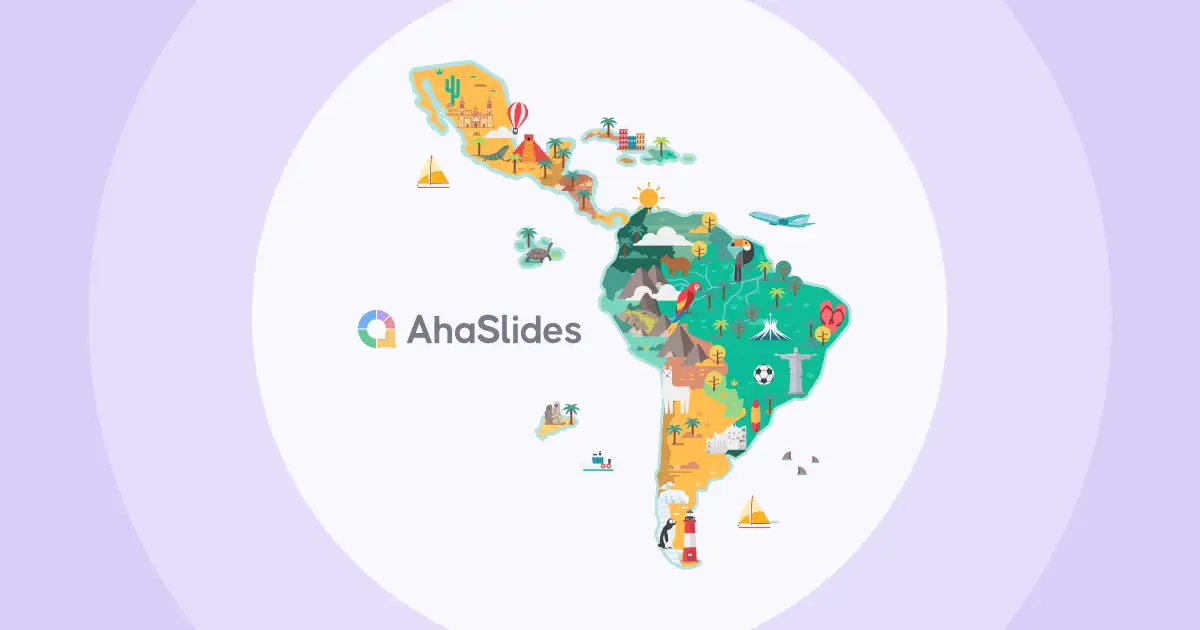You've gathered your team for a workshop. Everyone settles into their seats, eyes on phones, the silence thick with unfamiliarity. Sound familiar?
Get to know you games transform that awkward quiet into genuine connection. Whether you're onboarding new employees, kicking off a training session, or building team cohesion, the right icebreaker activities help people relax, open up, and actually engage with each other.
This guide covers 40+ proven get-to-know-you questions and 8 interactive games that work for corporate teams, training environments, and professional gatherings—both in-person and virtual.

Why get to know you activities actually work
They reduce social anxiety. Walking into a room of strangers triggers stress. Structured activities provide a framework that makes interaction easier, especially for introverts who find spontaneous networking uncomfortable.
They accelerate trust building. Research shows that shared experiences—even brief, playful ones—create psychological bonds faster than passive observation. When teams laugh together during an icebreaker, they're more likely to collaborate effectively later.
They surface commonalities. Discovering shared interests, experiences, or values helps people find connection points. "You also love hiking?" becomes the foundation for relationship building.
They set the tone for openness. Starting meetings with personal sharing signals that this is a space where people matter, not just productivity. That psychological safety carries forward into work discussions.
They work across contexts. From five-person teams to 100-person conferences, from boardrooms to Zoom calls, get-to-know-you activities adapt to any professional setting.
8 best get to know you games for professional settings
Quick icebreakers (5-10 minutes)
1. Two truths and one lie
Best for: Teams of 5-30, training sessions, team meetings
How to play: Each person shares three statements about themselves—two true, one false. The group guesses which is the lie. After guessing, the person reveals the answer and can elaborate on the truths.
Why it works: People share interesting facts naturally while maintaining control over what they reveal. The guessing element adds engagement without pressure.
Facilitator tip: Go first to model the level of personal detail appropriate for your context. Corporate settings might stick to career facts; retreats can go deeper.
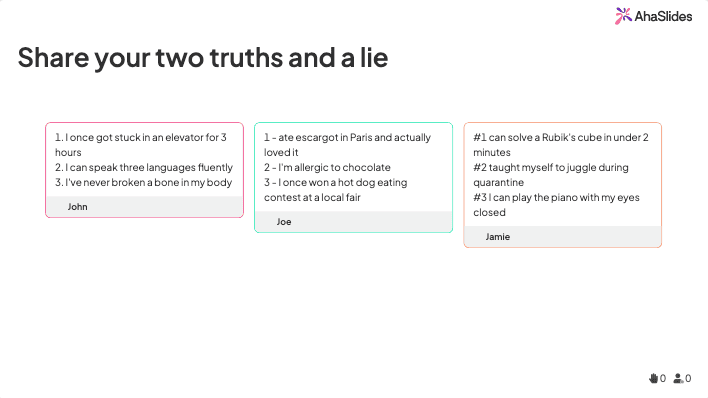
2. Would you rather
Best for: Any group size, virtual or in-person
How to play: Pose dilemmas: "Would you rather work from home forever or never work from home again?" Participants choose sides and briefly explain their reasoning.
Why it works: Reveals values and preferences quickly. The binary choice makes participation easy while sparking interesting discussions about priorities.
Virtual variation: Use polling features to show results instantly, then invite a few people to share their reasoning in chat or verbally.
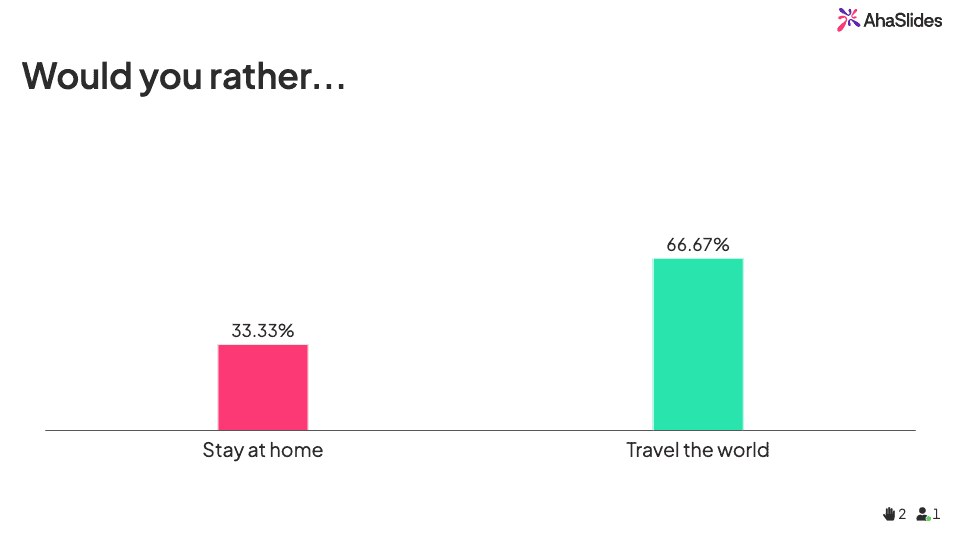
3. One-word check-in
Best for: Meetings, team huddles, 5-50 people
How to play: Going around the room (or in Zoom order), each person shares one word describing how they're feeling or what they're bringing to the meeting today.
Why it works: Quick, inclusive, and surfaces emotional context that affects engagement. Hearing "overwhelmed" or "excited" helps teams calibrate expectations.
Facilitator tip: Go first with honesty. If you say "scattered," others feel permission to be real rather than defaulting to "good" or "fine."
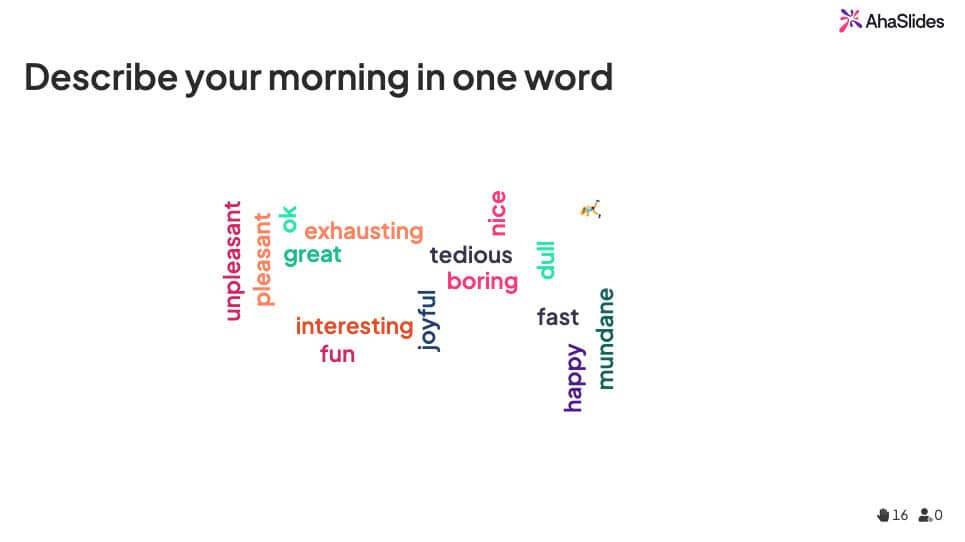
Team building games (15-30 minutes)
4. Human bingo
Best for: Large groups (20+), conferences, training events
How to play: Create bingo cards with traits or experiences in each square: "Has travelled to Asia," "Speaks three languages," "Plays a musical instrument." Participants mingle to find people matching each description. First to complete a line wins.
Why it works: Forces mingling in a structured way. Provides conversation starters beyond weather and work. Works well when people don't know each other at all.
Preparation: Create bingo cards with items relevant to your group. For tech companies, include "Has contributed to open source." For global teams, include travel or language items.
5. Team trivia
Best for: Established teams, team building events
How to play: Create a quiz based on facts about team members. "Who has run a marathon?" "Who speaks Spanish?" "Who worked in retail before this career?" Teams compete to guess correctly.
Why it works: Celebrates individual diversity while building collective knowledge. Works especially well for teams who work together but don't know personal details.
Setup required: Survey your team beforehand to gather facts. Use AhaSlides or similar tools to create the quiz with live leaderboards.
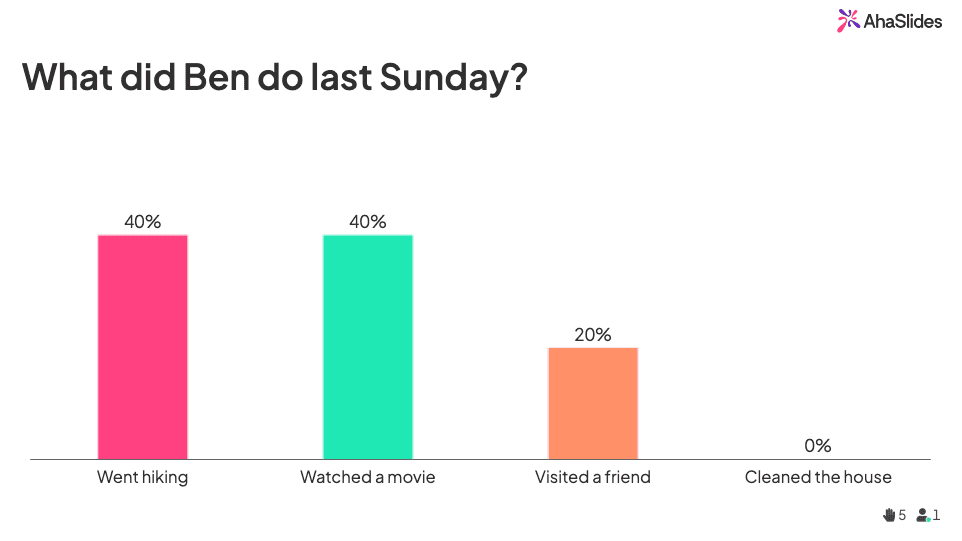
6. Show and tell
Best for: Small teams (5-15), virtual or in-person
How to play: Each person shows an object meaningful to them—a photo, book, travel souvenir—and shares the story behind it. Set a two-minute time limit per person.
Why it works: Objects trigger stories. A simple coffee mug becomes a tale about living in Italy. A worn book reveals values and formative experiences.
Virtual adaptation: Ask people to grab something within arm's reach and explain why it's on their desk. Spontaneity often yields more authentic sharing than prepared items.
Virtual-specific games
7. Background story
Best for: Remote teams on video calls
How to play: During a video meeting, ask everyone to explain something visible in their background. It could be a piece of art, a plant, books on a shelf, or even why they chose this particular room for their home office.
Why it works: Turns the virtual setting into an advantage. Backgrounds offer glimpses into people's lives and interests. It's casual enough for regular team meetings yet reveals personality.
8. Virtual scavenger hunt
Best for: Remote teams, virtual events, 10-50 people
How to play: Call out items for people to find in their homes within 60 seconds: "Something blue," "Something from another country," "Something that makes you laugh." First person back on camera with the item gets a point.
Why it works: Physical movement energises virtual meetings. The randomness levels the playing field—your job title doesn't help you find something purple fastest.
Variation: Make items personal: "Something that represents a goal," "Something you're grateful for," "Something from your childhood."
40+ get to know you questions by context
For work teams and colleagues
Professional questions that build understanding without oversharing:
- What's the best career advice you've ever received?
- If you could work remotely anywhere in the world, where would you choose?
- What's a skill you're currently trying to develop?
- What makes you feel most proud about your current role?
- Describe your ideal work environment in three words
- What's your favourite thing about your career path?
- If you weren't in your current field, what would you be doing?
- What's one work challenge you've overcome that taught you something valuable?
- Who has been a mentor or major influence in your career?
- What's your preferred way to recharge after a demanding work week?
For training sessions and workshops
Questions that relate to learning and growth:
- What's one thing you hope to learn from this session?
- Tell us about a time you learned something difficult—how did you approach it?
- What's your favourite way to learn new skills?
- What's the biggest professional risk you've taken?
- If you could master any skill instantly, what would it be?
- What's one thing you've changed your mind about in your career?
- What makes someone a "good colleague" in your view?
- How do you handle receiving critical feedback?
For team building and connection
Questions that go slightly deeper while remaining professional:
- What's a place you've visited that changed your perspective?
- What's a hobby or interest people at work might not know about you?
- If you could have dinner with anyone living or dead, who and why?
- What's something you're looking forward to in the next year?
- What's a book, podcast, or film that influenced your thinking recently?
- What would you do if you won the lottery tomorrow?
- Who in your life most makes you feel at home?
- What's your unpopular opinion?
For lighter moments and fun
Questions that bring humour without awkwardness:
- What's your go-to karaoke song?
- What's the worst fashion trend you participated in?
- Coffee or tea? (And how do you take it?)
- What's your most-used emoji?
- What's a food combination others find weird but you love?
- What's your favourite way to waste time online?
- What would be the title of your autobiography?
- If you could star in any film, which would you choose?
For virtual teams specifically
Questions that acknowledge remote work realities:
- What's your favourite thing about working from home?
- What's your biggest work-from-home challenge?
- Show us your workspace—what's one item that makes it uniquely yours?
- What's your morning routine look like?
- How do you separate work time from personal time at home?
- What's the best virtual meeting tip you've discovered?
Tips for facilitating get to know you activities
Match activities to your context. A quick one-word check-in suits regular team meetings. Deep timeline sharing belongs in off-sites. Read the room and choose accordingly.
Go first and set the tone. Your vulnerability gives others permission. If you want authentic sharing, model it. If you want it light and fun, demonstrate that energy.
Make participation optional but encouraged. "You're welcome to pass" removes pressure while most people still participate. Forced sharing creates resentment, not connection.
Manage time firmly but warmly. "That's a great story—let's hear from someone else now" keeps things moving without being rude. Long-winded sharers will monopolise time if you let them.
Bridge to the work ahead. After icebreakers, explicitly connect the activity to your session's purpose: "Now that we know each other better, let's bring that same openness to solving this challenge."
Consider cultural differences. What feels like harmless fun in one culture might feel invasive in another. When working across cultures, stick to professional topics and make participation truly optional.
Looking for an easy way to run interactive activities with your team? Try AhaSlides free to create live polls, quizzes, and word clouds that make get-to-know-you sessions engaging and memorable.
Frequently asked questions
How long should get to know you activities take?
For regular meetings: 5-10 minutes maximum. For training sessions: 10-20 minutes. For team building events: 30-60 minutes. Match time investment to the importance of relationship building in your context.
What if people seem resistant or uncomfortable?
Start with low-stakes activities. One-word check-ins or "would you rather" questions are less threatening than sharing childhood stories. Build up to deeper activities as trust develops. Always make participation optional.
Do these activities work for remote teams?
Absolutely. Virtual teams often need icebreakers more than in-person groups because casual hallway conversations don't happen. Use polling features, breakout rooms, and chat functions to adapt activities for video calls.




